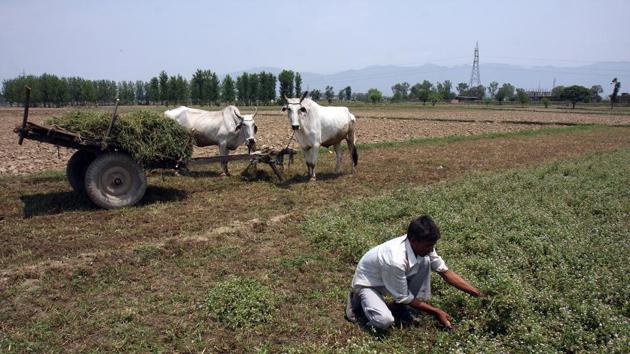Limited number of labs, farmers to wait for a ‘full season’ to get soil test report
With four labs in Barmer, out of 5,000, only 2,000 samples can be tested in a month.
The central government has launched the National Mission for Sustainable Agriculture (NMSA) and is also organising special camps to prepare and distribute soil health cards to farmers. In Barmer, however, farmers have to wait for around four months to get soil test reports, which is almost a full crop season. This is affecting their yield negatively.

Dhirendra Gujar, assistant agricultural research officer, at the agriculture department in Barmer said that at present there are four soil testing laboratories in Barmer. One at the district headquarters, two at Balotra and Gudamalani and one private lab in Barmer.
Gujar said that the laboratory located at the district headquarters has the capacity to test 50 samples a day and 8,000 samples a year. The total capacity of four labs is between 15,000 and 20,000 samples a year, he said.
“Usually, we get around 5,000 samples a month from the fields. We can process only 2,000 samples at all four laboratories in a month. In such a scenario, it takes three months to process all collected samples,” said Gujar.
He said that after processing the soil samples, they need 15 more days to prepare the report and another 15 days to distribute it among farmers.
Dr Pradeep Pagariya, an agronomist, said that by large this part of western Rajasthan is a single-crop region. “In such a scenario, delayed soil test reports will ruin the whole season. The government should take serious note of this and act accordingly,” said Pagariya.
He said that the government should increase the number of testing laboratories and equipped the area with mobile soil testing laboratories.
Three years ago, the central government had announced to equip gram panchayats with digital soil testing labs. However, it has not become a reality. Three years on, farmers are still dependent on traditional methods and uncertainty looms large over the quality of crops.
“Usually we get soil test reports in three to four months. Sometimes it takes more time. We need more laboratories in the district,” said Sabal Singh, a farmer.
At present, farmers in Barmer have to travel about 100 kilometre to get the test report.
The soil report tells the farmers which nutrients are lacking in the soil only. The farmers then arrange fertilizers from the market. “We generally get fertilizers on time, but some time due to shortage it gets delayed. So farmers lose a whole season,” he said.
Singh said that instead of making tall claims, the government should check the ground reality and efforts should be made to help the farmers.






